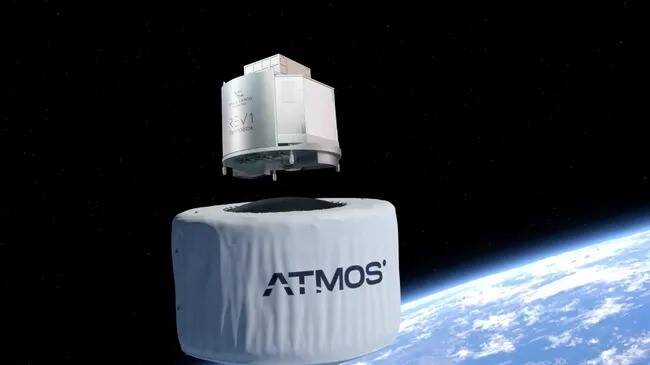A European company is preparing for a major milestone in space logistics, as it gears up for the first in-space test of its cargo-return technology. Germany’s Atmos Space Cargo has announced that its Phoenix reentry capsule will fly aboard SpaceX’s Bandwagon 3 rideshare mission, marking a significant step forward in European space innovation.

Artist's illustration of Atmos Space Cargo's hardware in Low Earth orbit. Image credit: Atmos Space Cargo
A Falcon 9 rocket is set to launch Bandwagon 3 no earlier than April, according to Atmos. The mission will test Phoenix’s ability to bring materials back from space safely and efficiently—an increasingly valuable capability for industries such as biomedical research.
"This first test flight is the culmination of relentless effort from our team at Atmos," said Sebastian Klaus, CEO and co-founder of the company. "I am proud to lead this mission at such a crucial moment for Europe. Our space industry needs disruptive innovation to compete on a global scale."
Designed to return high-value cargo from space, Phoenix could play a key role in advancing research in fields such as monoclonal antibodies, stem cells, organoids, and protein crystallization. The company highlights a growing demand for cost-effective and reliable return services, particularly in the life sciences sector.
"Launching experiments has become simpler and cheaper, but returning them to Earth remains a challenge due to high costs, long lead times, and reliability issues," Atmos stated on its website. The company aims to change that by offering affordable and frequent return flights with Phoenix.
Innovative Reentry Technology
Phoenix will rely on an Inflatable Atmospheric Decelerator (IAD)—a proprietary Atmos technology that functions as both a heat shield and a high-velocity parachute. This system will enable the capsule to survive the intense conditions of reentry and deliver its cargo safely.
The initial Phoenix model can carry up to 220 pounds (100 kilograms) of material, but future versions will be capable of transporting several tons—potentially including large components such as rocket stages.
For its debut mission, Phoenix will carry four payloads, including a radiation detector from the German space agency DLR and a bioreactor developed by UK-based Frontier Space. The test flight aims to:
-Gather data on Phoenix’s performance in orbit
-Collect information from customer payloads
-Deploy and stabilize the IAD system during reentry
While Phoenix is not expected to survive this first mission, Atmos plans to use the collected data to refine and enhance future versions of the capsule.
Atmos is not alone in the race to develop orbital cargo-return solutions. California-based Varda Space has already demonstrated the potential of in-space manufacturing and return. In February 2024, Varda’s W-1 mission successfully brought back space-grown antiviral drug crystals to Utah’s desert.
However, Atmos claims that Phoenix offers greater efficiency, delivering more cargo per unit of capsule mass than competing solutions. The company believes its entry into the spaceflight sector will accelerate innovation across the industry.
"Advancements in reusable, affordable, and reliable downmass technology are essential to the future of space development," said Lori Garver, former NASA Deputy Administrator and an advisor to Atmos.
"The ability to return life sciences research, rocket upper stages, military spacecraft, and manufactured materials from orbit could be the next major breakthrough in space transportation," she added.


Add comment
Comments